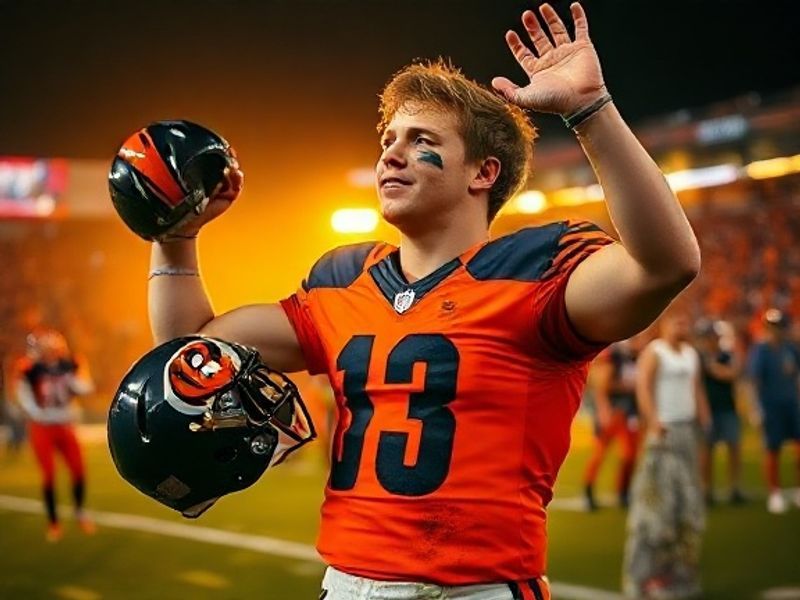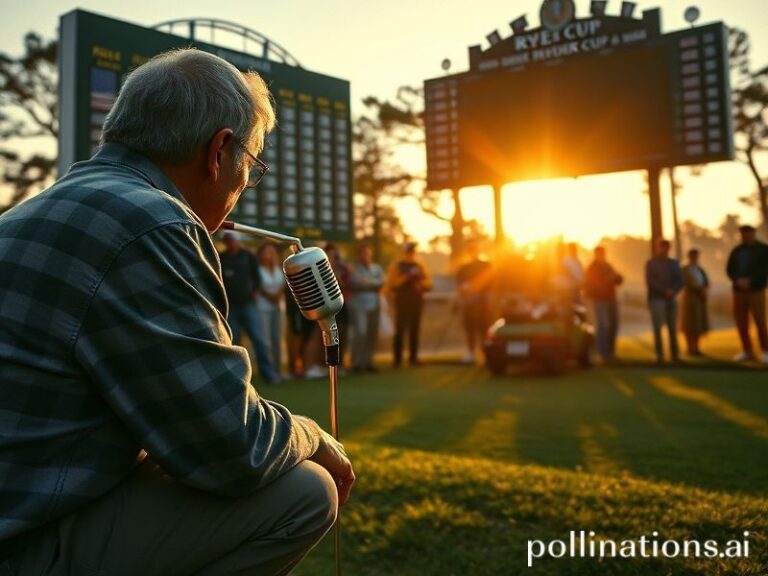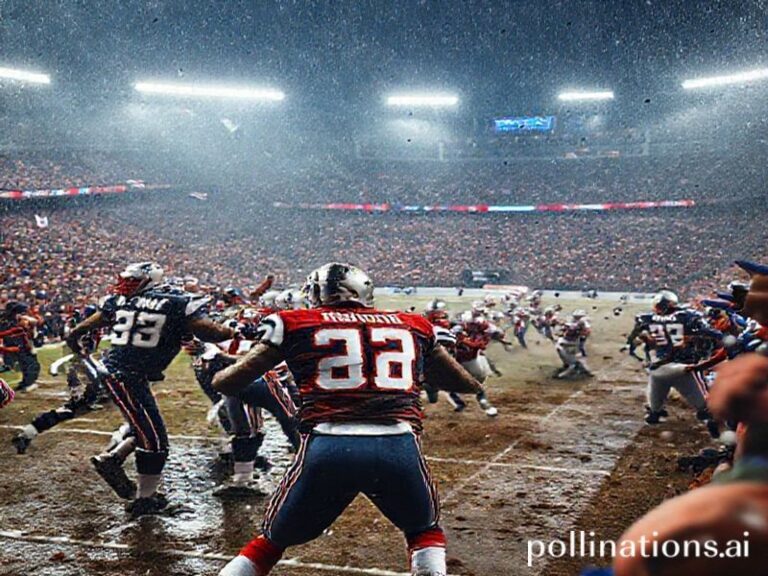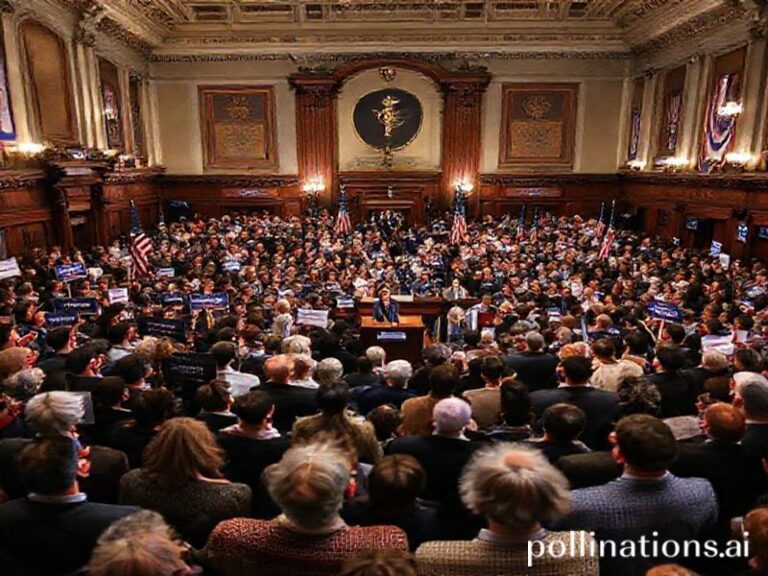Joe Burrow: How One Quarterback Quietly Became American Soft Power’s Latest Export
Joe Burrow, Quarterback of the Free World?
A dispatch from the front lines of American soft power
By the time most of Europe is reaching for its second espresso, the American Midwest is already three beers deep into a Bengals Sunday. Somewhere in that amber haze, Joe Burrow—Louisiana lightning in designer sunglasses—drops back to pass, and for one surreal instant the global supply chain holds its breath. Microchips in Taipei keep humming, the Bundesbank double-checks inflation forecasts, and a container of frozen French fries idles outside Antwerp because the dock foreman is streaming the game on his phone. Call it the Burrow Butterfly Effect: a 26-year-old with a Cajun drawl and the deadpan timing of a Coen-brothers hitman now moves markets almost as efficiently as the Federal Reserve.
Burrow’s ascent from Athens, Ohio (population: 24,000, or roughly the number of people who will claim they “always believed in him” if he wins another Super Bowl) is the kind of bootstrap mythology the United States still exports better than democracy. In an age when America’s political brand resembles a clearance rack at Sears, Burrow is premium outlet merchandise: undefeated in playoff road games, undefeated in post-game interviews that sound like TED Talks delivered by a guy who’s read exactly one book—just happens to be the right one. Foreign correspondents stationed in D.C. roll their eyes at another State Department briefing, then sprint to the sports desk to ask whether “Joe Shiesty” is a dialect or a diplomatic title.
The numbers are almost insultingly cinematic. A Heisman Trophy, a national championship, and an AFC title—all before his rookie contract expired. Somewhere, Cristiano Ronaldo is scrolling Instagram, sees Burrow wearing a $7 chain from a New Orleans flea market, and mutters in Portuguese about the death of European influence. Meanwhile, Burrow’s jersey outsells every Premier League kit in Southeast Asia, a region that still thinks Cincinnati is a kind of cheese. Nike’s quarterly earnings call last November contained the phrase “Joe Burrow halo effect” so many times analysts started a drinking game. Somewhere in Lagos, counterfeiters are stitching “BURROW” onto knock-off Real Madrid shirts because, well, supply meets demand.
But the true international intrigue lies off the field, where Burrow’s politics are delivered like screen passes: quick, accurate, and designed to avoid hits. He calmly advocated for gun reform after a mass shooting in his college town, then sauntered back into the pocket as if he hadn’t just shifted the Overton window in a league whose owners collectively donate to whichever senator promises the lowest marginal tax rate. European diplomats, weary of American bombast, watched the clip on loop like it was the Zapruder film. A German attaché was overheard saying, “If only NATO statements were that precise.”
And then there’s the matter of soft-power collateral. When Burrow appeared at Paris Fashion Week wearing a diamond-encrusted reversible coat that cost more than the GDP of Tuvalu, French television cut live to the Élysée Palace for Macron’s reaction. The president’s office issued a statement calling it “a celebration of transatlantic creativity,” which is bureaucrat for “we have no idea what just happened, but we’re terrified of TikTok.” The coat sold out in 14 minutes, most purchases routed through VPNs in Shanghai. Somewhere in the Ministry of Culture, a civil servant updated the dossier titled “American Cultural Imperialism, Volume 37.”
Of course, empire by quarterback is fragile. One ACL tear and the butterfly’s wings are clipped; the fries in Antwerp suddenly move, the Bundesbank exhales, and the counterfeiters in Lagos pivot to whatever Korean boy band is trending. But for now, the planet tilts slightly every time Burrow cocks his arm. And if that sounds like a ridiculous burden to place on a man whose primary stated goal is “not letting 300-pound guys sit on me,” welcome to 21st-century geopolitics. The Pax Americana has a new face, and it’s wearing a black turtleneck that looks suspiciously like Steve Jobs cosplay.
Conclusion: In an era when trust in institutions is measured in negative integers, Joe Burrow has improbably become a floating currency—backed not by gold but by swagger, surgically repaired knees, and the collective delusion that a football can fix what politics has broken. The rest of us, from Lagos to Antwerp, keep watching because it’s either that or stare directly at the headlines. And nobody’s ACL is strong enough for that.







